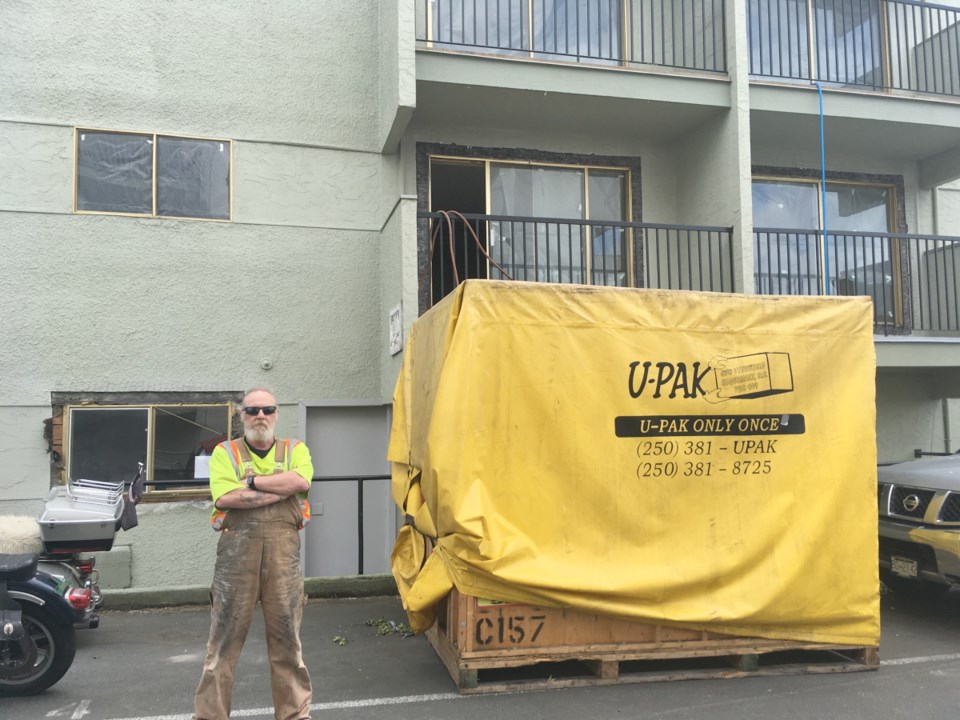The last tenants camping out at a Cook Street apartment building where all the tenants were evicted have been given 48 hours to leave.
Steve Smith and Shelley Aspinall made a last-ditch attempt on Wednesday to keep their home of 11 years, hoping an arbitration would decide they could move out during repairs and move back in at the same rent.
But Smith and Aspinall said they weren’t even able to make their case because the landlord argued that the couple had outstanding rent and should be evicted. The couple say they were prepared to pay all but May rent and had written cheques, but there was a breakdown in communication about how the money would be delivered.
The arbitrator from the Residential Tenancy Branch sided with the landlord and ordered Smith and Aspinall to be out in 48 hours. “We’re normal, everyday people and we’re being kicked out of our home after 11 years,” said 51-year-old Smith, who works for a window company. “We’ve got to come up with the money to pay the higher rents because everything is going up in Victoria.”
It’s been four months since residents of the 32-unit building at 2626 Cook St. were handed a mass 60-day eviction notice so the new building owners could renovate, with a plan to re-rent the units at market rates when the project is completed.
An anti-poverty advocacy group, Together Against Poverty Society, says these type of “renovictions” are happening across the city, as a vacancy rate of 0.5 per cent pushes up rents across Victoria.
The couple has a temporary home lined up, the top floor of a home on Haultain Street, where they’ll be paying $1,200 a month, much more than the $745 a month they were previously paying. However, the house is for sale, so the accommodation is only temporary.
Their one-bedroom apartment is mostly bare, with just a blanket and pillows on the floor. “We’ve basically been camping out,” Aspinall said.
Their belongings are tucked away in a storage container sitting in a parking spot next to the apartment.
Vancouver-based Headwater Projects bought the building in 2016, the company’s first property in Victoria. The building is undergoing a top-to-bottom renovation, including asbestos removal and plumbing, which requires it to be empty for six months.
Plastic sheets are taped to the doorways and the carpets have been stripped in the musty-smelling hallways. Aspinall said the asbestos removal had already started in April.
When eviction notices were issued in late January, tenants, some of whom had been living in the building for decades, were given 60 days to relocate.
Tenants who moved out within the 60 days were offered one month’s free rent, plus $250.
Eleven people applied for dispute resolution under the Residential Tenancy Act and 10 accepted a settlement with the landlord for higher compensation. Smith said tenants signed a non-disclosure agreement, but he was told some were given about $8,000.
Rebecca Haar, Headwater’s senior property manager, said other tenants — aside from those who applied for dispute resolution — also received compensation for moving costs and to cover the difference in their new rental rate for up to a year.
She said about 25 per cent of building residents received compensation above the $250. Smith and Aspinall will get no compensation because they opted for arbitration.
“Renters don’t have any protections,” Aspinall said. “Nobody should have to go through this.”



